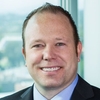- videocam On-Demand Webinar
- signal_cellular_alt Intermediate
- card_travel Patent
- schedule 90 minutes
Overcoming 101 Rejections for Computer and Electronics Related Patents
Leveraging USPTO Guidance and Recent Decisions to Meet 101 Patent Eligibility Requirements
Welcome to BARBRI, the trusted global leader in legal education. Continue to access the same expert-led Strafford CLE and CPE webinars you know and value. Plus, explore professional skills courses and more.
About the Course
Introduction
This CLE course will guide patent counsel in overcoming Section 101 rejections for computer and electronics related patents. The panel will review recent case law and USPTO guidance on 101 patent eligibility and offer strategies to address Section 101 rejections.
Description
Since the Supreme Court's decision in Alice Corp. v. CLS Bank, the USPTO dramatically increased its rejections under 35 U.S.C. 101, and the federal courts and the Patent Trial and Appeal Board have been increasingly active in invalidating issued patents. Further, the USPTO released several memoranda and solicited public comments on patent examination under Alice.
Applicants can anticipate more rejections going forward. Those who receive a 101 rejection and their counsel must plan and implement robust strategies for deciding whether to file and for overcoming patent eligibility rejections issued in pending applications.
Listen as our authoritative panel of patent attorneys discusses how courts and the PTAB have been applying the Alice decision and the USPTO's guidance on 101 rejections. The presenters will offer best practices for patent counsel on ways to address 101 issues.
Presented By

Mr. Hart practices all areas of patent law, specializing in preparing and prosecuting patent applications in the mechanical and electrical arts. He excels at mastering complex technical information while maintaining the big picture and communicating key concepts in a comprehensible, concise, and persuasive manner. His applications have covered autonomous vehicles, object tracking for collision avoidance, seatbelt assemblies, airbag assemblies and deployment, vehicle crash testing, additive manufacturing, and automobile frames, among other areas. Mr. Hart has participated in cases in federal district court, investigations before the International Trade Commission, and inter partes review proceedings before the Patent Trial and Appeal Board. He has experience with a wide variety of technologies, including LTE (long-term evolution) standards, in-dash GPS units, textiles, enterprise storage systems, mobile-phone operating systems, lottery-ticket printing, hydraulic fracturing (fracking) equipment, lithium-ion battery packs, 2D-to-3D conversion software, cloud computing, content distribution networks, piston solid lubricants, and prosthetic knee replacements. Mr. Hart's litigation experience helps him keep a patent’s ultimate potential outcome—enforcement—in mind throughout the prosecution process.

Mr. Shepherd’s practice emphasizes client counseling and patent prosecution in the areas of software and other computer-related technologies. He has significant experience counseling clients on obtaining patent protection for a variety of technically complex technologies, including computer architecture and chip design, graphics processing units, robotics, neural networks and other machine learning technologies, programming language design, static analysis of source code, and cloud computing platforms and applications.
-
This 90-minute webinar is eligible in most states for 1.5 CLE credits.
-
Live Online
On Demand
Date + Time
- event
Tuesday, November 12, 2024
- schedule
1:00 p.m. ET./10:00 a.m. PT
- State of the law and latest post-Alice Corp. trends
- Federal courts
- PTAB
- USPTO examiners
- Strategies for addressing 101 rejections
- Identifying and arguing deficiencies in examiner's characterization and addressing the rationale for rejection
- Examiner interviews
- Amending claims
- Improved drafting to avoid rejections
The panel will review these and other critical issues:
- What are the significant recent 101 decisions at the Federal Circuit, the district courts, and PTAB?
- How can specifications and claims be drafted to guard against 101 rejections?
- What strategies and arguments can be used in patent prosecution to overcome 101 rejections?
Unlimited access to premium CLE courses:
- Annual access
- Available live and on-demand
- Best for attorneys and legal professionals
Unlimited access to premium CPE courses.:
- Annual access
- Available live and on-demand
- Best for CPAs and tax professionals
Unlimited access to premium CLE, CPE, Professional Skills and Practice-Ready courses.:
- Annual access
- Available live and on-demand
- Best for legal, accounting, and tax professionals
Unlimited access to Professional Skills and Practice-Ready courses:
- Annual access
- Available on-demand
- Best for new attorneys
Related Courses

Evaluating and Acquiring Patent Portfolios: Key Considerations
Available On-Demand

Patent Validity and Entresto: Lessons From the Ongoing Dispute
Available On-Demand

Obviousness Standard: Leveraging Latest PTO and Court Guidance
Available On-Demand



